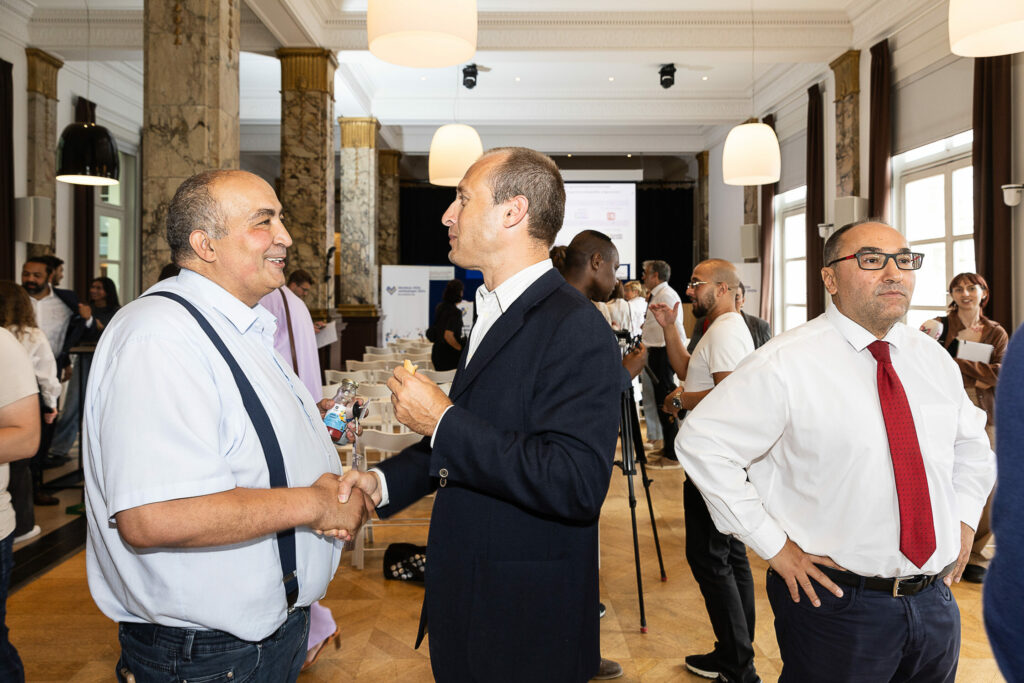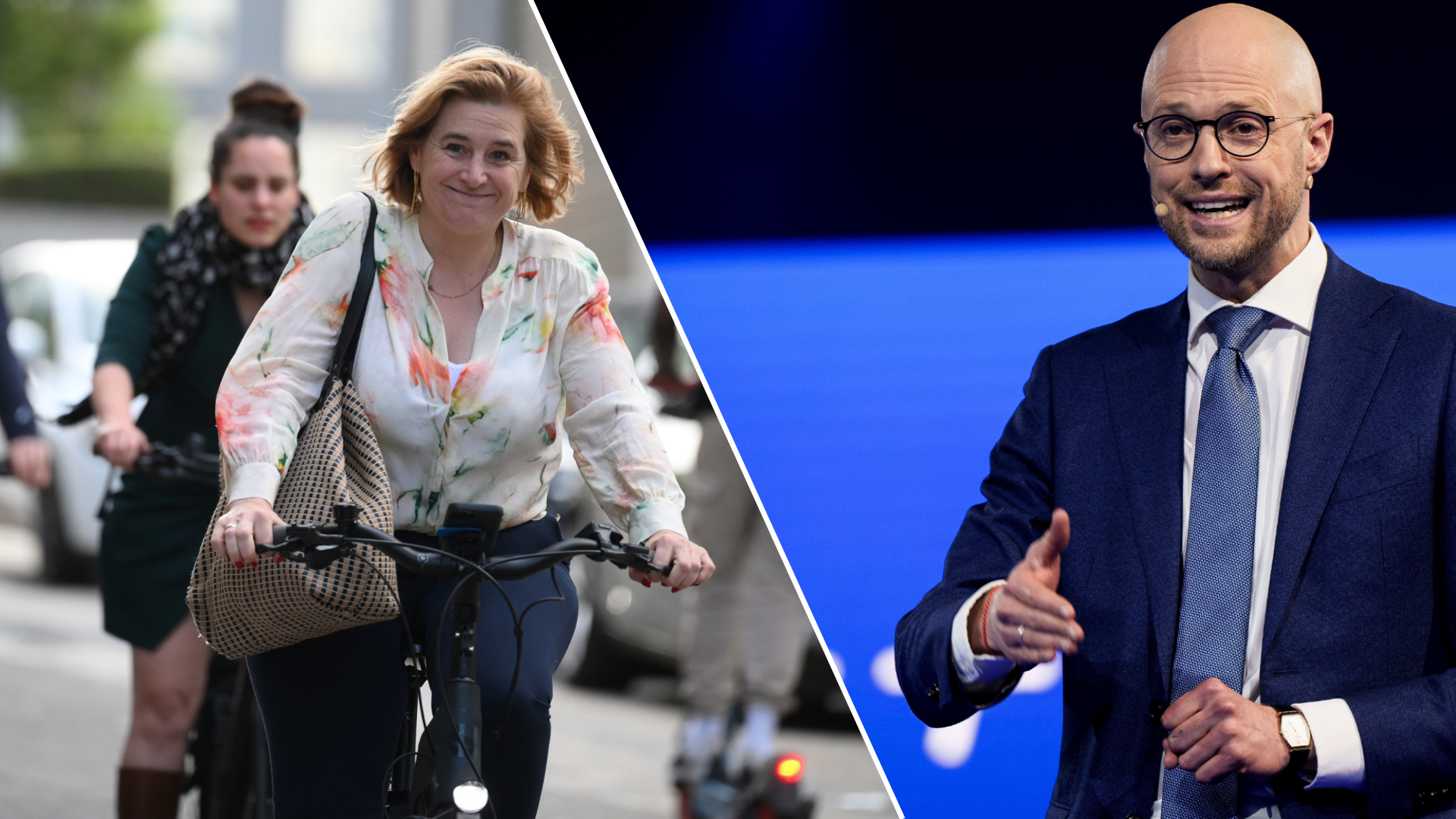Six months after the elections, we still do not know which parties are going to form the next government of the Brussels-Capital Region. The deepest cause of this paralysis is a “confederal” political model that no longer fulfils the function for which it was created.
Philosopher Philippe Van Parijs reflects on current debates in Brussels, Belgium and Europe.
A peculiar balancing act
Very peculiar: that is what any outsider would understandably think about the way in which the government of the Brussels-Capital Region is meant to be formed.
The model was created when Brussels’ political life was dominated by the conflict between its French-speaking majority and its Dutch-speaking minority. The head of the government – the "Minister-President" – can in principle be either French- or Dutch-speaking. But de facto they are always francophone.
Of the other four senior ministers, two must be French-speaking and two Dutch-speaking. In addition, there are three junior ministers called secretaries of state, two French-speaking and one Dutch-speaking.
The two sets of ministers – French-speaking and Dutch-speaking – are chosen independently of one another. Each needs to be endorsed by a majority, respectively, among the French-speaking and the Dutch-speaking members of the regional parliament.
To this end, the members of parliament are elected in two electoral colleges, both covering the whole territory of the region, one with 72 seats reserved for candidates with a French-language identity card, the other with 17 seats reserved for candidates with a Dutch-language identity card. Candidates, like all other Brussels citizens, can choose freely the language of their identity card and voters can choose freely between the two colleges.
The assumption however is that French-speaking Brusselers will choose to be candidates and vote in the French-speaking college, and Dutch-speaking Brusselers in the Dutch-speaking one.
Two abusive vetoes?
Very soon after the 9 June elections, it was clear that on the French-speaking side the largest party and biggest winner, the liberal Mouvement réformateur (MR) would enter into a coalition with the Christian-democratic Les Engagés, as it did in Wallonia and promised to do at the federal level.
But these two parties alone did not have a sufficient number of MPs to form a majority in the French-speaking parliamentary group. After some hesitation, the Parti socialiste (PS) agreed to join them.
Forming a coalition on the Dutch-speaking side has proved trickier. Like in 2019, the ecological party Groen was the largest party in the Dutch-speaking college. It was therefore in charge of forming a trio of ministers whose parties could command together more than half the seats in that college.
At an early stage, the possibility of offering a minister position to the second largest party, Team Fouad Ahidar – a new party created by a dissident from the Flemish socialist party – was vetoed by the (French-speaking) MR. And at a later stage the possibility of offering a minister position to the third largest party in the Dutch-speaking college, the Flemish nationalist N-VA, was vetoed by the (French-speaking) PS.
Betrayal of the confederal model? Definitely. Cordons sanitaires? Nonsense. Misplaced indignation at proposals – from the general authorisation of headscarves to the merging of the 19 municipalities – that at the very least deserve to be discussed? Certainly. Irresponsible stubbornness if it turns out that teaming up with those one demons is the only possible option? Given the urgent need to save Brussels from chaos and bankruptcy, absolutely!
However, there is nothing abnormal about those involved in the formation of one part of the government being concerned about the composition of the other. The objective is, after all, to put together a team that is sufficiently cohesive to be able to act together, without too much bickering, for five years.
The delays that have accumulated as a result of the vetoes by French-speaking parties are no accident. They illustrate the inherent flaw in a confederal model of government formation that is meant to stick together two components formed independently. The Brussels model has sometimes been presented as a magical formula for speeding up the formation of the federal government. I very much doubt that it will ever be again.

Fouad Ahidar (L), Christophe De Beukelaer of Les Engagés (middle) and PS' Ahmed Laaouej (R) pictured during the drawing of the list numbers for the upcoming local elections in Brussels region, 03 September 2024. Credit: Belga
Fewer Dutch-speaking citizens, more Dutch-speaking voters
The impasse in which the Brussels model has become entangled does nothing to recommend replicating it in other levels of government. But it also prompts reflection on the best way to modify it, starting with the observation that it now hardly fulfils, and is bound to fulfil less and less, the function for which it was created.
The dual electoral college system was created in response to a legitimate concern to guarantee a sufficient presence in the Brussels parliament and government of Dutch-speaking citizens elected by Dutch-speaking citizens. But as time passes, this is less and less what it does. Here is the evidence.
Over the last ten years, the share of votes cast in the Dutch-speaking college has steadily increased. It had fallen from 15.3% in 1989 to 11.2% in 2009. But it rose to a record level of 17.1% in 2024. Figures from the Taalbarometer, published every six years by the Vrije Universiteit Brussel (VUB), show that this spectacular recovery cannot be explained by an increase in the proportion of Dutch-speaking citizens.
On the contrary, between 2006 and 2024, the percentage of Brusselers whose only native language is Dutch fell from 6.8% to 6.3%, and from 15.5% to 11.8% if we include those for whom Dutch is combined with French.
The reason for the growing popularity of the Dutch-speaking college clearly must be sought elsewhere. As long as the proportion of seats allocated to the Dutch-speaking college – 17 seats, i.e. 19.1% – exceeds the proportion of votes cast there, each vote carries more weight and each candidacy has a greater chance of success than in the French-speaking college.
What's more, opting to vote for the Dutch-speaking college also gives you the right to vote for the Flemish Parliament. Even for people who are not in the least, nor feel in the least, Dutch-speakers, there may therefore be a strategic interest in opting for the Dutch-speaking college.
Many of those who vote for the Dutch-speaking college also have more specific reasons for doing so. For example, those who regardless of their native language have appreciated the perseverance of the Dutch-speaking Minister for Mobility. Or those who feel better represented by the multilingual Fouad Ahidar than by the candidates from the French-speaking college. And above all, the vast majority of parents in Brussels' Dutch-speaking schools.
When Brussels' political institutions were set up in 1989, 54% of pupils in these schools still had Dutch as their only native language. Today, the figure is only 9%. Why shouldn't the other 91% of parents choose to vote for the bodies responsible for their children's education, namely the Dutch-speaking group in the Brussels Parliament and the Parliament of the Flemish Community? Is this an abuse of the system? Not at all. It is a perfectly democratic use of a model that has been rendered dysfunctional by Brussels’ demographic metamorphosis.
A model for a society that no longer exists
The divide between Dutch and French speakers is no longer the divide that dominates Brussels’ political life. It has now been superseded by divides between car drivers and cyclists and between laïcs and Muslims.
In the 1980s, hardly more than 20% of Brussels residents of Belgian nationality (and therefore eligible to take part in the regional elections) were of recent foreign origin. Today, the figure is 66%. We are now a long way from a Brussels population made up of two tribes, each strongly identifying with one of the two official languages and unable to conceive of voting for someone from the other tribe.
The dual electoral college model was designed for a reality that no longer exists. It has become a handicap for Brussels’ democracy. It is time to abolish it.
This will not be so simple. First and foremost, we need to be able to continue to guarantee, presumably by means of a quota or threshold formula to establish an appropriate Dutch-speaking presence in the Brussels parliament and government. Such a guarantee cannot be justified by a privilege perpetually granted to the interests of what has become one minority among others.
It can, however, be justified by the Brussels Region’s interest in structurally ensuring the presence in its decision-making bodies of people who can facilitate mutual understanding and cooperation with the Dutch-speaking region that entirely surrounds Brussels and with a federal state in which Dutch-speakers form a majority.

Brussels is one of the most cosmopolitan cities in the world with residents from 184 different nationalities speaking hundreds of languages. Credit: Belga
Bilingual lists
Updating Brussels' democracy in this way will require obstinate politicians and astute lawyers. Once this update is complete, candidates will no longer be artificially prevented from forming "bilingual" lists at regional level, as they have long been doing at municipal level and as they have also been doing since the last election at federal level in the Brussels electoral district, across all political families.
As for the citizens of Brussels, and whatever language they like most or speak best, they will be able to choose between all the lists and even vote for both ‘French-speaking’ and ‘Dutch-speaking’ candidates on the same list. The fixed number of seats and strategic candidacies will no longer disrupt proportional representation.
And, as in the other two regions, the formation of the Brussels government can then be done in one fell swoop, without the need for laborious compromises between a French-speaking and a Dutch-speaking component that theoretically must but de facto cannot be formed independently of one another.
If such an arrangement had been in place on 9 June it is not too difficult to imagine what would have happened: Brussels would already have its government.

